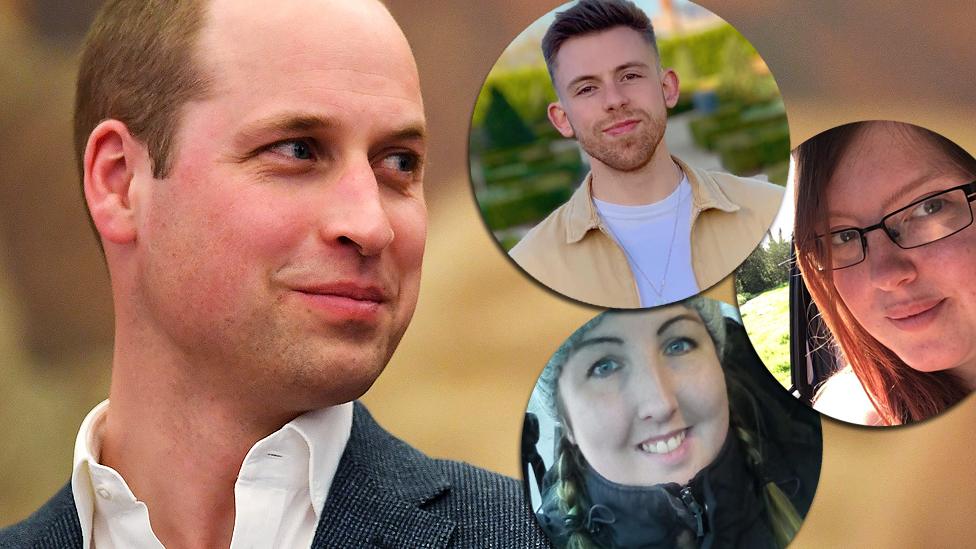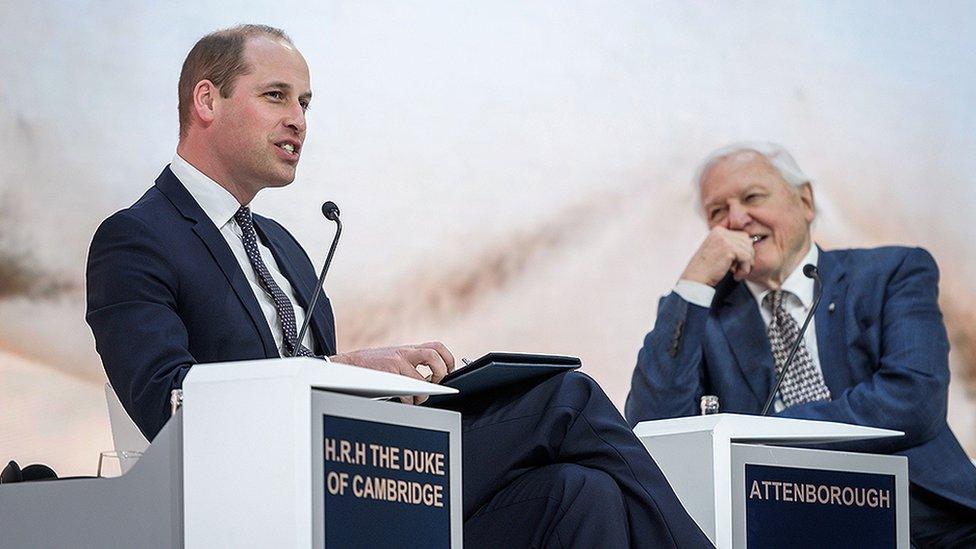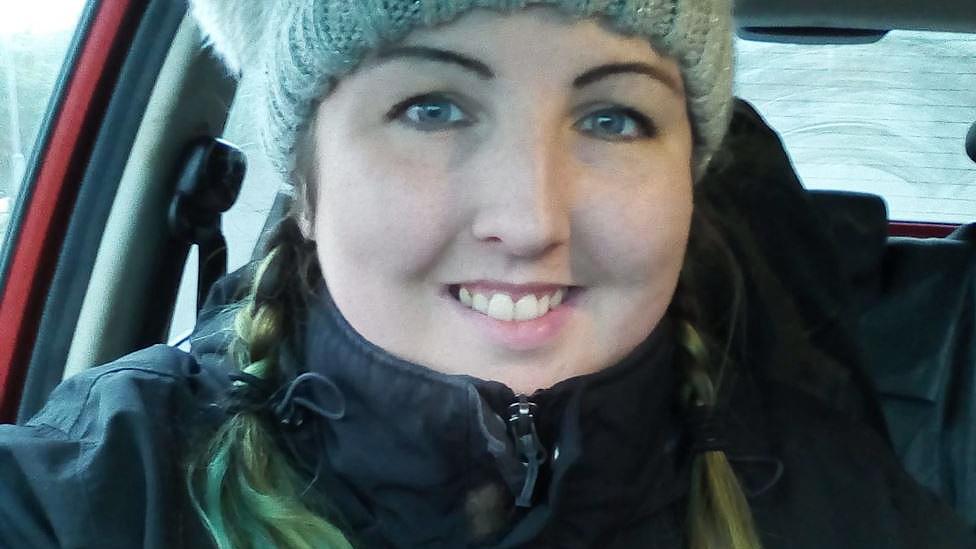Mental health at work: We agree with Prince William's message
- Published

Prince William says employers should provide more support for people whose mental health is causing them problems at work.
"It should be so much easier to go to HR and talk about it," he said during a speech in Switzerland.
He says bosses need to set the example, saying the change in culture "has to come from the top."
"For some reason, people are embarrassed about their emotions - British people particularly."
The head of HSBC bank, John Flint, backed William's calls for change, saying: "There's a profound difference between when I'm feeling my best and when I'm not."

Prince William was speaking at the Davos World Economic Forum about his mental health initiative, Heads Together
And his words ring true to people like Joe, who admits he has taken days off work due to "general sickness" when his mental health was poor.
"It is a real problem and it needs more investment," Joe tells Radio 1 Newsbeat. He works for a social media company in Manchester.
"Having people such as Prince William, who is really proficient in the conversation going on nowadays, is a massive step and it's great."
Joe says his company understands his OCD and even has a team dedicated to looking after employees' happiness.

"I thought that every decision that I made was the wrong decision," says Joe about his OCD
"It's a very present conversation that social media can have adverse effects on mental health," he says.
"They work with mental health charities and some really good resources that mean that I don't feel out of my depth if I am having a bad day - which has not happened in a long time.
"There's an on-hand therapist that we pay, that any member of staff can use at any time."
Joe's mental health worsened after he was at the Manchester Arena in May 2017, when a bomber killed 22 people at an Ariana Grande concert.
'Mental health has always been swept under the carpet'
Joe says previous employers didn't understand the importance of providing mental health care to its employees and that it's only as people have become more aware of its importance that workplaces have been able to support their staff.
"The more we talk about it the more informed and educated everybody is going to be," he says.
"My last employer wasn't bad. It's just that it was under the carpet and always has been."
Kat, who lives near Oxford, is also in a position where her workplace has processes in place where she can access support when she is struggling.

Kat says without an understanding workplace, she would have been forced to take sick leave due to her mental health
"I've had issues with anxiety and depression for most of my life but have always had support in my job as a project manager, especially from my line manager," Kat tells Newsbeat.
"She listens to me, she checks in with me and allows me to work flexibly when things are really hard.
"Because of that, it's helped me to stay in work and keep doing my job and not have to take time off."
But unfortunately, there are still people in the UK who don't feel like their employers understand the importance of their staff's mental health.
'I feel like my company wants to get rid of me'
Danny, a lorry driver from the West Midlands tells Newsbeat he feels like his company "doesn't believe mental health issues are a real thing."
He says he's suffered from mental health problems since 2014 when his son died.
"I feel like it's a problem they'd rather see the back of and that they're doing what they can to get rid of me," he says.
Other people, like Rebecca from South Wales, were able to turn their experience with an employer who didn't provide support into a positive situation.

Rebecca left her work in a supermarket and started her own business as a dog walker
"I used to work in a supermarket in Cardiff until I suffered a few bereavements," Rebecca says.
"My mental health went downhill and I was called into the office to see whether I should stay on at the company or not.
"I am now a self-employed dog-walker and I really enjoy my job. My mental health has been at it's best ever since I started."
You can visit the BBC Advice pages for more information on mental health.
Follow Newsbeat on Instagram, external, Facebook, external and Twitter, external.
Listen to Newsbeat live at 12:45 and 17:45 every weekday on BBC Radio 1 and 1Xtra - if you miss us you can listen back here.
- Published24 September 2018

- Published9 October 2018

- Published8 November 2018

- Published19 January 2018

- Published19 May 2017
